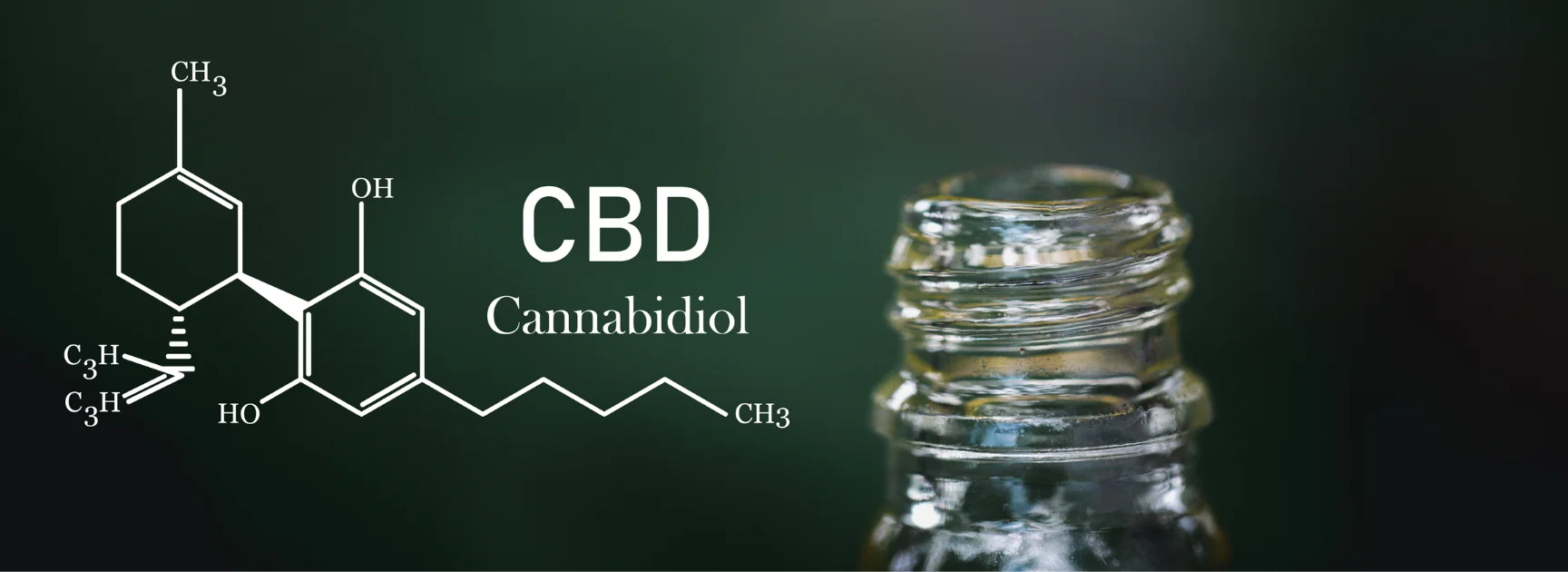Choosing a format and dose
Become a friend of Pureis Ultra Pure CBD
Thank you for signing up!

Read time: 4 minutes
You’ve probably seen packets of capsules of CBD on the shelves at your local chemist, or oil droppers on sale in health food shops – but what is CBD, and what is CBD used for?
You’re not alone in asking. This fascinating compound has been taking the world by storm since it was made legal for purchase over-the-counter in 20181 in the UK. But whilst the market for the product is booming, many people aren’t aware of what CBD is – and more importantly, the significant health benefits research is showing it can provide us with.
Read on to find out more about this intriguing cannabinoid.
Cannabidiol (CBD) is an extract of the hemp (or cannabis) plant.2 CBD is one of many active cannabinoid compounds present in the plant, but isolated CBD is non-intoxicating and doesn’t give the user a ‘high’, meaning it doesn’t affect cognition or general performance,2 unlike THC – the most commonly-known psychoactive element of cannabis.
Most people are aware that the hemp (or cannabis) plant has many medical benefits – hence the rise of ‘medical marijuana’ in many states of the USA. Whilst some countries are relaxing the laws on the sale and use of cannabis as a raw product, in the UK and many other countries, it is still a controlled substance. However, as CBD is a non-psychoactive extract of the plant, it’s been perfectly legal to buy it in the UK since 2018.1 As a result, consumers are rushing to try CBD to experience the positive effects it can have on a wide variety of physical ailments and processes.
When it hits the bloodstream, CBD interacts with the body in the most fascinating ways. Essentially, CBD is non-psychoactive because, where THC affects the CB1 and CB2 receptors in the brain, CBD instead works with the endocannabinoid system (or ECS).3 The ECS is a complex system that helps to govern a host of different processes throughout the body and CBD assists it to restore homeostasis in the human body4 – meaning a state of balance.
As we’ve mentioned, CBD has a multitude of applications and can have a positive impact on many of our bodily systems. People have been using CBD as part of their exercise regime whilst others take it as part of their mental health treatment. It’s also been used for those suffering from insomnia, those experiencing pain and for those dealing with stress and anxiety. There are also cosmetic applications of CBD, including hair and skin treatments.
Research has shown that CBD has several potential applications in terms of mental health and brain health. There are early studies that show encouraging signs that CBD can help modulate the production of serotonin,5 so many suffering from depression have added it to their treatment. CBD also appears to influence those suffering from anxiety and stress6 balancing cortisol levels which are the main cause of the uncomfortable feelings stress can induce. CBD also appears to aid the process of neurogenesis and neuroplasticity7 – both of which are essential to keeping the brain in good form.
CBD appears to be an effective anti-inflammatory,8 which is good news for people suffering from pain or swelling. Inflammation is caused by the proliferation of cytokines, an essential immune response which instigates pain. CBD appears to work with the ECS to regulate the production and delivery of this response, reducing pain and inflammation as it does so.
Pain, discomfort, stress, and anxiety are leading causes of sleep disturbance, so it follows that CBD can help the user get a better night’s sleep if they suffer from any of these issues. Additionally, as CBD helps the body to work towards homeostasis, early data suggests that it can help us to remain focused and concentrated during the day,9 and help us to fall asleep at the end of the day.10
CBD has the ability to help to stop free-radicals being produced,11 which can damage cells in the body. This is great for heart health and can prevent heart disease from forming. CBD also works to reduce high blood pressure,12 which contributes to many heart diseases
CBD is being considered and researched as a treatment for a number of more serious conditions. Among them, CBD appears to lower the intensity of hallucinations that often accompanies Parkinson’s disease.13 Some trials have also been carried out to demonstrate that CBD’s neuropathic properties can help those suffering from Alzheimer’s disease.13 Additionally, many cancer patients have been using CBD to deal with the symptoms that accompany their cancer treatment.14
CBD comes in a wide variety of formats, presenting the user with a huge number of options in terms of how to take it. When first extracted, CBD is placed into a carrier oil, and many users like to take it via a pipette (which usually comes with the product), dropping it onto their tongues so it can reach the blood system sublingually.
However, that approach isn’t for everyone, and if that doesn’t appeal, you can take capsules, oral and nasal sprays, edibles, or even topical balms.
Before you take any new supplement, it’s always worthwhile getting the advice of a medical professional, especially if you are already on a form of medication or have existing health concerns. Your doctor should be able to advise you on whether CBD would suit you, how to take it and how much to take.
Pureis is a food supplement, not intended to treat or prevent any physiological or psychological disease.